Bingo has a long association with professional football, with sponsorship deals dating all the way back to the 1980s. These days bingo companies are part of a wider mix of gambling brands that appear on football shirts and in stadiums, but recent controversies involving high-profile players have raised questions over the future of football’s relationship with the gambling industry.
Millions of people watch football at home and at stadiums around the country every week, and plenty enjoy a bet on the game as part of their matchday ritual.
Gambling companies have been connected with the game of football ever since the game became popular with the masses, but in the last three decades they have become more and more prominent in the game, sponsoring teams, players and competitions.
In recent years, gambling and football have been in the headlines due to several controversial incidents involving professional players being punished with long-term playing bans for placing bets.
In this article we’ll take a look back at the historic association that bingo companies and other gambling brands have with professional football in England and explore just what has happened in recent years to make the topic so talked about. Some of these-have even led to changes in betting rules, and we examine how gambling rules are changing in other sports as a result.
*18+. New Bingo customers only. Opt in required. Spend £10 cash on Bingo Tickets to receive 100 Free Tickets and 50 Free Spins on eligible slots. Time limits, exclusions and T&Cs apply. Please play responsibly. Gambleaware.org #AD
Bingo and football: a perfect match?
Granada Bingo was the first bingo brand to get involved in football sponsorship when it became the primary sponsor of Coventry City in 1986. For Granada Bingo, the timing could not have been better: Coventry were about to embark on the club’s greatest success, and the name of the popular land-based bingo hall was proudly emblazoned across the shirts of the Sky Blues’ 1987 FA Cup winning team.
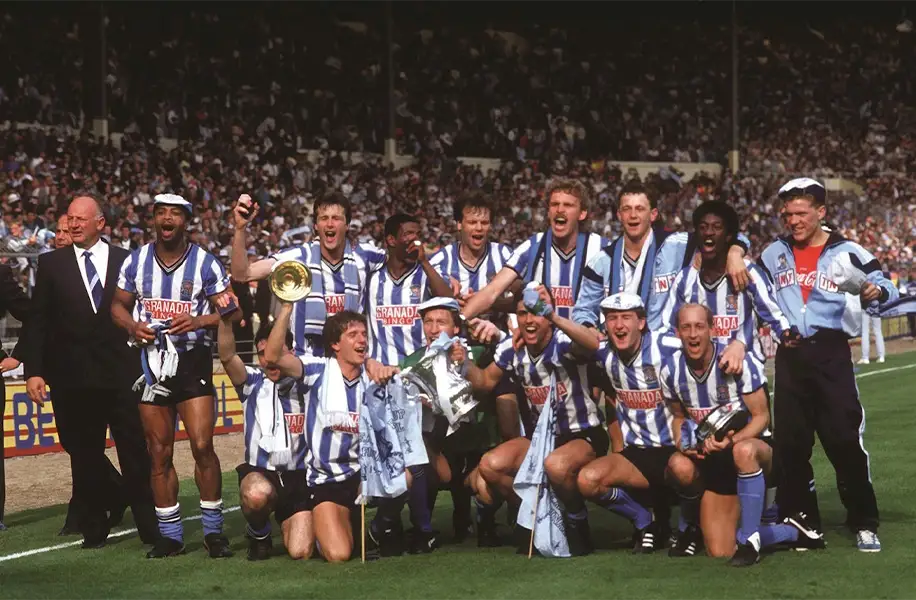
Image credit: Mark Hornby
Coventry City’s FA Cup triumph helped to raise the profile of Granada Bingo halls among the club’s largely male fan base, and this inspired several other gambling brands to engage with football and seek to benefit from its massive appeal.
Retail and betting company Littlewoods was a name associated with football in the 1980s and 90s due to its sponsorship of the League Cup, the FA Community Shield and the FA Cup.
Sponsorship deals between football clubs and gambling companies became more common in the 2000s, and in 2010 the Sunderland-based online bingo company tombola became the principal sponsor of Sunderland AFC, who were a Premier League club at the time.
This catapulted tombola and online bingo into the spotlight as millions of supporters around the world saw tombola’s name on the famous red-and-white striped shirt of Sunderland, thanks to the huge viewing numbers the Premier League enjoys globally.
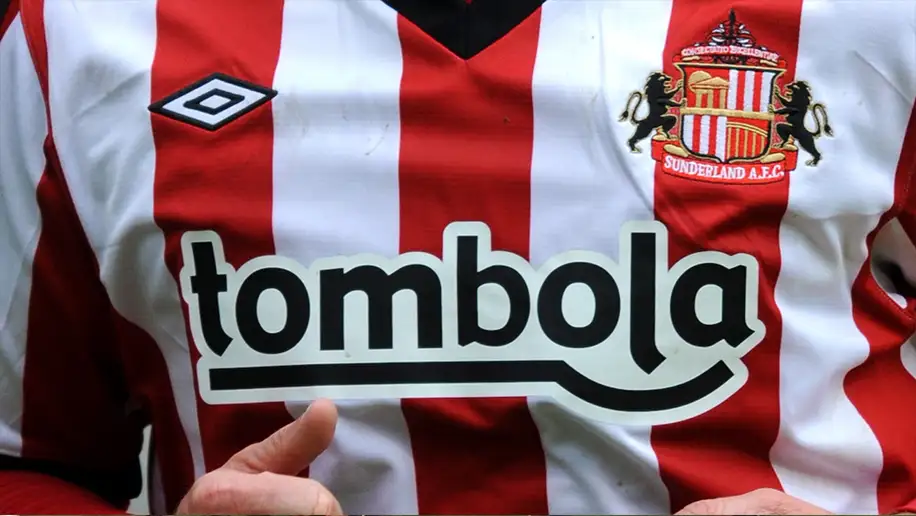
At the time, tombola’s chief executive Phil Cronin, himself a Sunderland supporter, said: “Sponsoring Sunderland AFC is a fantastic opportunity for tombola. With our own head office here in Sunderland we have been able to see the work that [Sunderland chairman] Niall [Quinn] and his team have done to transform the fortunes of the club.
“We’re really looking forward to working with Sunderland and we’re confident that this sponsorship will help us achieve our own ambitions.”
18+. New Customer Offer only. Deposit and spend £10 on bingo tickets within 30 days of joining Paddy Power Bingo. Get £10 as Slots Bonus. Get £30 paid as Bingo Bonus & 100 Free Spins ( £0.10/spin). 1 per customer. Full T&Cs apply. Please Gamble Responsibly. GambleAware.org #AD
Chequered history leads to new rules
The relationship between professional football clubs and gambling has been brought into the spotlight over the years, particularly when there has been suspicion that players making bets may have compromised the integrity of the sport.
All the way back in 1915, three players from Manchester United and four from Liverpool were given bans for betting on a match that United won 2-0, and even back then gambling sustained public interest in the sport.
In 1964, 10 players were jailed for fixing football matches in order to profit from gambling operations, including Everton and England’s star player Tony Kay, who allegedly bet on his own team to lose. In the mid-1990s former Liverpool and Southampton goalkeeper Bruce Grobbelaar, one of the game’s most enigmatic and recognisable characters, was at the centre of a match-fixing trial in which he was acquitted.
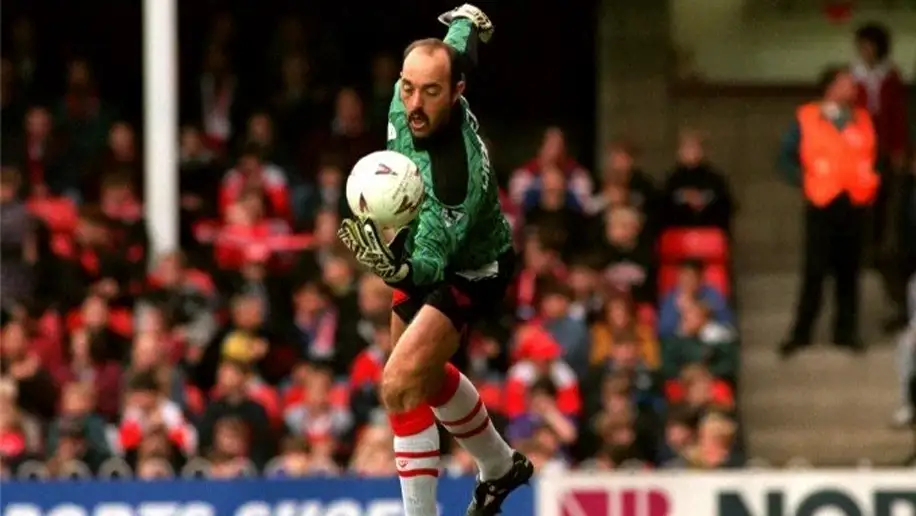
Image credit: PA
The complications around football and gambling were not confined to these shores, and Italian football was engulfed in a match-fixing and bribery scandal in the mid-2000s, with major clubs including Juventus penalised for using corrupt tactics to sway the outcome of matches.
With gambling sponsorships on the rise in the 2000s and 2010s, the Football Association introduced new rules on betting ahead of the 2014-15 season, and these rules prohibited anyone involved in football from betting on any football match, anywhere in the world. The rules obliged clubs and players to report any suspicious betting activity that they learn of, and stipulated that players and clubs must have no direct involvement in the setting of odds, determining of markets or the selection of or placing of individual bets on football.
18+. New Bingo players only. Deposit required. Spend £5 or more on Bingo tickets to get a 25 Bingo bonus. 2x wagering requirements apply to bonus. Accept bonus within 14 days. Bonus valid for 30 days. Certain deposit types excluded. Player restrictions and T&Cs apply. Please gamble responsibly. Gambleaware.org #AD
High-profile rule breaches
The implementation of those new rules led to the situation football finds itself in today, with several high-profile players banned from playing due to their involvement in betting.
The recent bans dished out to Brentford striker Ivan Toney and Newcastle midfielder Sandro Tonali, preventing the players from playing football anywhere for eight and 10 months, respectively, have left many people questioning the integrity of a sport that is happy to cosy up to gambling brands for sponsorship deals, but punishes players when they partake in bets themselves.
Toney was looking set to star for England at the 2024 European Championship until he was handed an eight-month ban, having been found guilty of 232 rule breaches. Meanwhile, Tonali has been banned for 10 months after the Italian Football Federation found he made bets on AC Milan matches while he played for the Italian club.
With Kieran Trippier, Andros Townsend, Daniel Sturridge and Joey Barton all having received punishment for breaching betting rules, pundits and supporters are asking whether the sport’s governing bodies should take some responsibility for the problem, given that they are happy to reap the profits from sponsorship and advertising revenues that gambling firms bring to the sport.
18+. New Casino players only. Deposit req (certain types excluded). Bet £10+ on qualifying games to get £50 Bonus (selected games, 40x wag req, accept within 14 days, valid for 30 days) & 1000 Coral Coins. Player restrictions and T&Cs apply.
Change on the horizon
The impact of gambling on those players who get involved in betting and on the general public is kept under close scrutiny, and the recent government-led review of the 2005 Gambling Act proposed a number of measures intended to protect players and spectators alike.
One outcome of the review is that clubs in the Premier League have volunteered to end front-of-shirt sponsorships by gambling firms from the end of the 2025/26 season onwards, in a move that will prevent future scenarios like the one involving Ivan Toney, whereby a player who wears a shirt with a gambling company’s logo receives a ban for gambling.
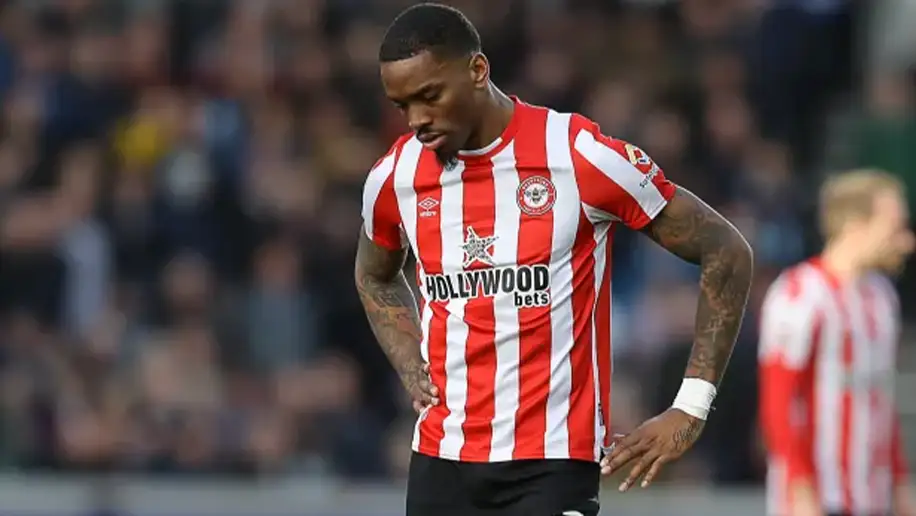
Image credit: IMAGO/Sportimage/Paul Terry
Along with other proposals including a new gambling ombudsman and the strengthening of safer gambling information, the review also proposed the implementation of affordability checks, whereby gambling operators must check customers’ financial circumstances for signs that their losses might be harmful. However, a petition to stop the implementation of such checks garnered more than 80,000 signatures from those concerned about the effect it might have on the horse racing industry.
Min. £10 in lifetime deposits required. Offer must be claimed within 30 days of registering a bet365 account. Select prizes of 5, 10 or 20 Free Spins; 10 selections available within 20 days, 24 hours between each selection. Max. prize, game restrictions, time limits and T&Cs apply. #AD
Safe Gambling is Key
There are many sides to the debate, but with sport and in particular English football having such a prominent place in the nation’s culture, there are clear voices calling for the game to take responsibility for protecting people – whoever they might be – from harm.
James Grimes runs a charity called The Big Step, which is tackling football’s relationship with gambling. A former gambler himself, Grimes told the BBC: “We welcome the recommendation to remove gambling sponsorship and advertising in the Premier League.
“We’ve been calling on government and football to reduce gambling exposure to children, in order to prevent young people going through the same thing that I did. Premier League football has a responsibility to prevent gambling exposure to its young fans, which make up a quarter of its audience.”
In addition to the government-led review of the Gambling Act, the Gambling Commission ensures that safety in gambling is put in the spotlight every year during Safer Gambling Week.
A Gambling Commission spokesperson told The Athletic: “We know that over 20 million people in the UK regularly gamble in some way and for the vast majority this is something they do without any issue. However, around 340,000 people in Britain are problem gamblers.
“With this in mind, Safer Gambling Week is the ideal opportunity for operators to demonstrate how they can raise standards and showcase how Britain can become a world leader in making gambling as safe as possible.”
It’s clear that the relationship between football and gambling will continue to evolve and change to better meet the needs of supporters, players, clubs and sponsors, as the sporting community strives to create a balance between enjoyment, safety and sustainability long into the future.
*New customers only. Opt-in required. 100% Match Bonus up to £50 on 1st deposit of £10+. 50x wagering & game weighting applies. Debit Card deposits only (exclusions apply). This offer is valid for 7 days from your new account being registered. 18+. BeGambleAware.org. Bet The Responsible Way Full Terms Apply
Other Latest Industry News

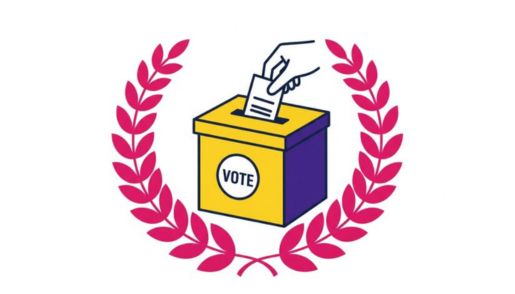



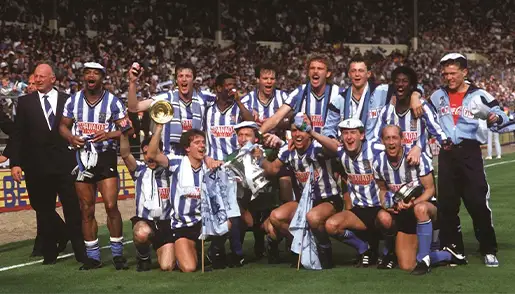







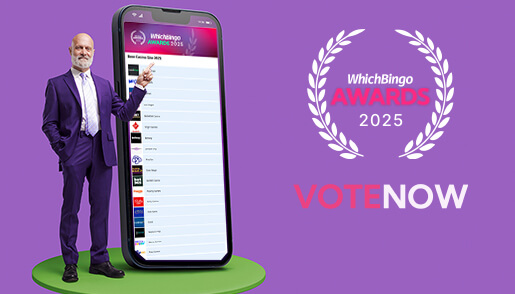

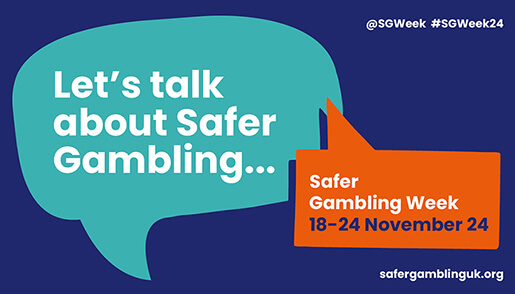

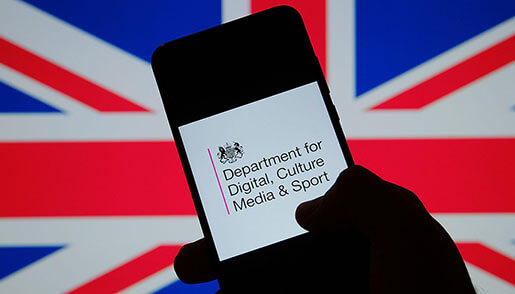
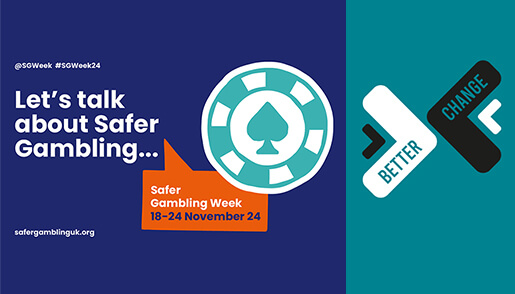
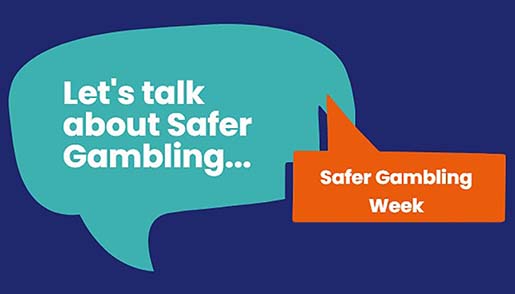



Reader comments